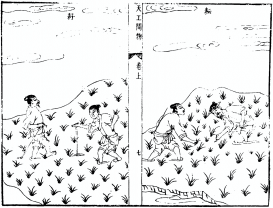This project examines the conceptions, structures, and experiences of timeliness in war and farming in early modern Northeast Asia. Early Chinese texts emphasized the critical role of the state in observing seasonal distinctions in governance, rituals, and agriculture. They warned that untimely actions would bring grave consequences not only to harvests, but also to the health of the human body. Among circumstances under which such structuring of appropriate timing created tension was the operation of war. Drawing on military treatises, memorials, and local gazetteers in Chinese and Korean, this project inquires into the previously little-studied intersection of war and temporality in early modern Northeast Asia and the coexistence of multiple temporalities in the Sino-Korean borderland. This project assesses how cross-border wars disrupted agricultural production and removed labor from the land when it was most needed. It also illuminates how the awareness of seasonal rhythms was shaped by changes in the natural environment, recorded by the Chinese and Korean bureaucracies.

Project
(2020-2021)
Rhythms of War and Farming in Early Modern China and Korea
- Masato Hasegawa
- Cooperation Partners:
- Einstein Center Chronoi Otto-von-Simson-Straße 7, 14195, Berlin, Germany
